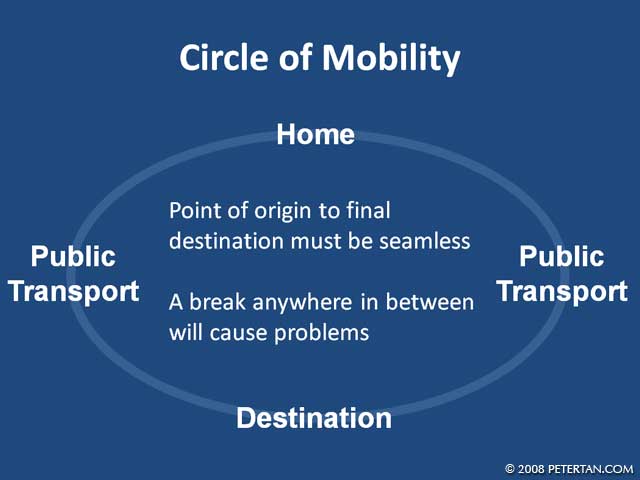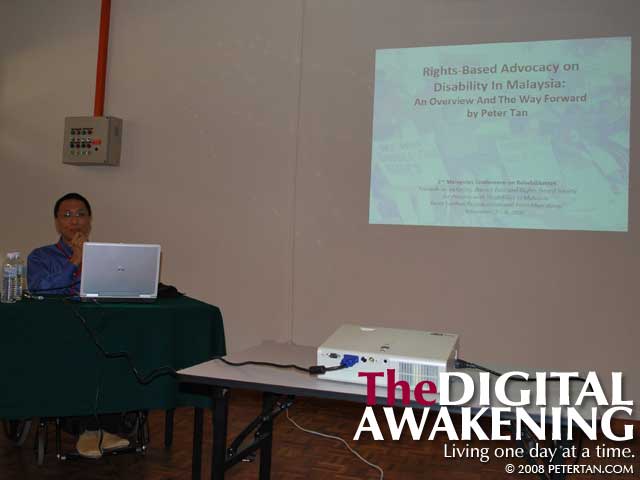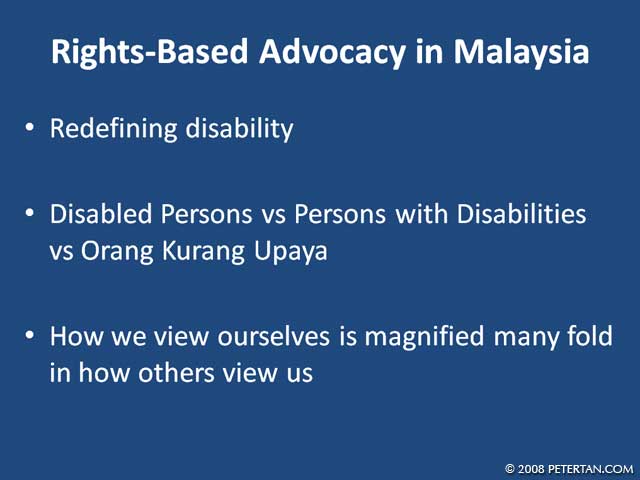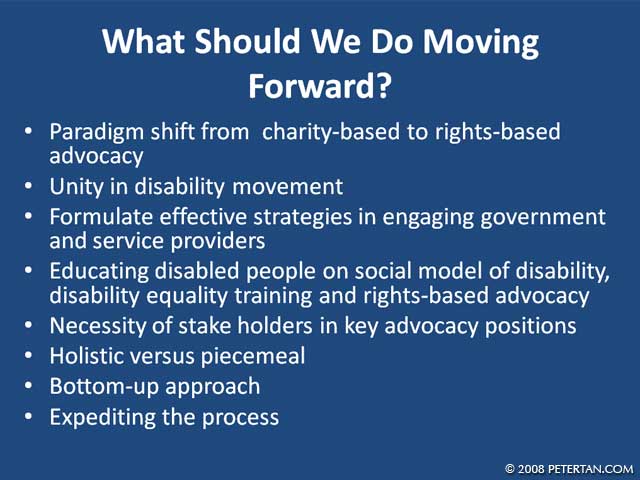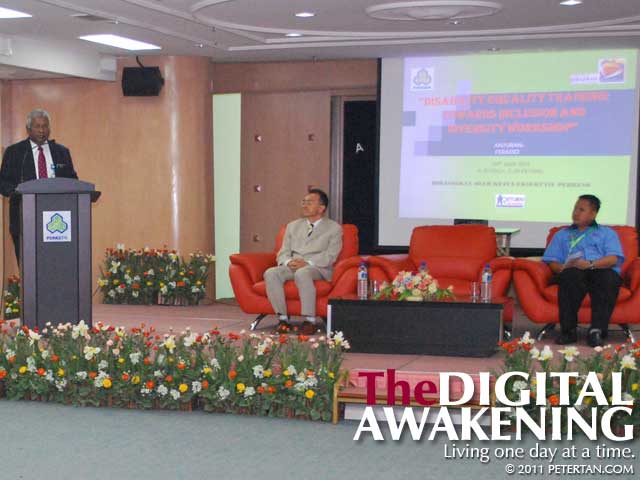
SOCSO Chief Executive Officer K. Selvarajah giving a speech at the opening of the Disability Equality Training workshop. Seated L-R: JICA Senior Advisor Dr. Kenji Kuno and Manager of SOCSO Return To Work Section Roshaimi Mat Rosely.
Photo by Wuan.
The Department of Return to Work of the Social Security Organisation Malaysia (SOCSO) organised a Disability Equality Training (DET) workshop for employers in the private sectors and staff of SOCSO last Thursday. Private sector participants were from Malaysia Airlines, British American Tobacco, Sunway Hotel, KFC, Pizza Hut, Ayamas, Sports Toto and Cathay Cineplexes, among others. The theme of the workshop was “Towards Inclusion and Diversity”. It was conducted at Menara PERKESO in Jalan Ampang and officiated by SOCSO Chief Executive Officer K. Selvarajah.
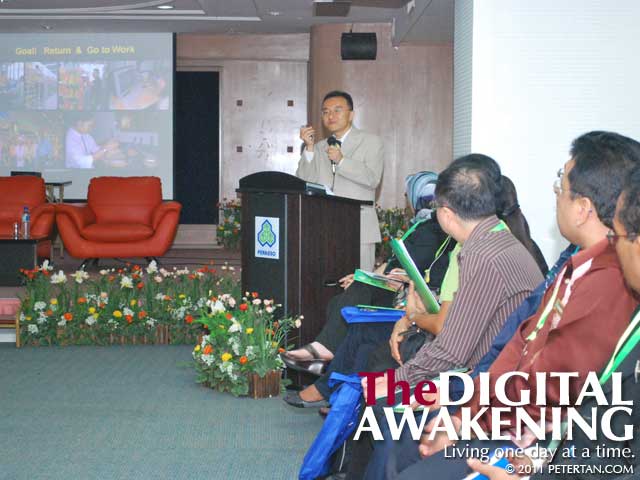
JICA Senior Advisor Dr. Kenji Kuno facilitating the Disability Equality Training at SOCSO.
Photo by Wuan.
During the half-day DET workshop, Dr. Kenji Kuno guided participants through the various aspects of understanding disability as a social issue and how problems arising from attitudinal and environmental barriers can be resolved by applying the Open Box Solution method. These exercises are in view of making workplaces accessible and inclusive. I acted as the co-facilitator again this time.

SOCSO Claims Manager Edmund Cheong explaining the Return To Work Program.
Photo by Wuan.
At the afternoon session, SOCSO Claims Manager Edmond Cheong provided a very detailed presentation on the benefits of the Return To Work Program. This program provides support for workers disabled in the course of employment going back to work after treatment and rehabilitation.
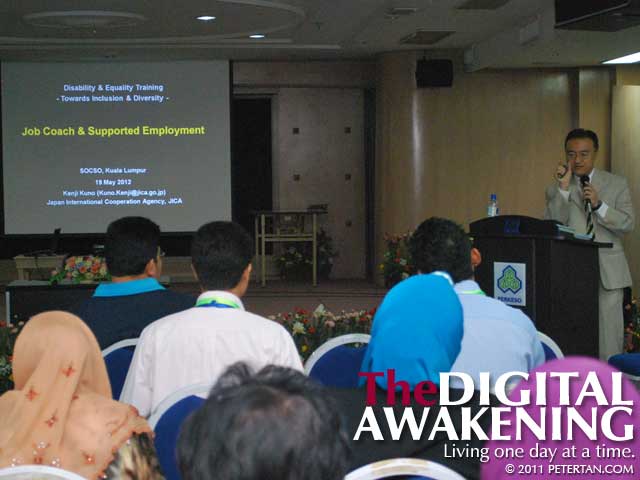
Dr. Kenji Kuno giving presentation on Job Coach at SOCSO.
Photo by Wuan.
That was followed by Dr. Kuno’s talk on Job Coach. This is an initiative by the Japan International Cooperation Agency (JICA) and the Jabatan Kebajikan Masyarakat Malaysia (JKM) to enable and empower disabled people through gainful employment. Among the many services of Job Coaching are job matching for employers and disabled people, and training and support during employment. Currently, JKM is absorbing the cost of Job Coaching service for employers seeking to hire disabled people.
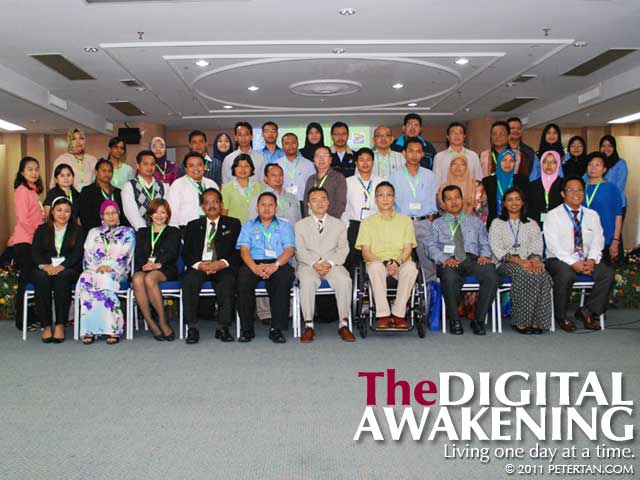
Group photo with participants at SOCSO Disability Equality Training Workshop – Return To Work Program – Job Coach Seminar.
Photo by Wuan.
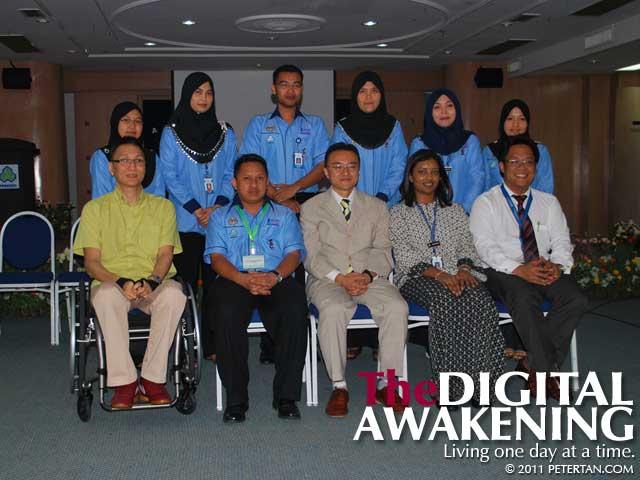
Group photo with staff of SOCSO.
Seated L-R: Peter Tan, Roshaimi Mat Rosely, Dr. Kenji Kuno, Gayathri Vadivel and Edmund Cheong.
Photo by Wuan.

